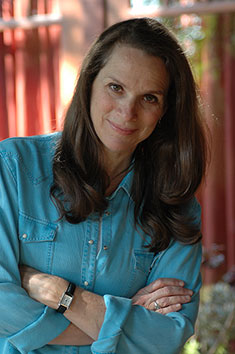Not all of Katz's colleagues in the world of medical ethics feel as strongly as he does about the right and wrong of the UCLA study. Dr. Frederick K. Goodwin, former director of the NIMH, wrote a memo on the researchers' behalf: "Are we to hold researchers responsible for events which may well be a part of the . . . course of a severe illness?" he asked. Katz's "respected colleague and friend," Dr. Robert J. Levine, who heads Yale Medical School's review board, wrote Katz a note: "My perception of the investigator's motivation continues to be very different from yours." Levine believed in the distinction Nuechterlein and Gitlin made when they said they were not inducing relapse, merely studying it when it occurred as part of the normal procedure of drug withdrawal. And then there's the OPRR's decision that except for informed consent, the study passed clinical muster.
All the more reason, Katz believes, to use the UCLA case as a foothold to radically transform the current system and create new oversight mechanisms. Katz says the answer is to dismantle the bureaucracy of the independent review boards and to create a national review board with the authority to oversee and audit experiments that pose especially difficult moral questions. "They would not be unregulated, invisible bodies that make decisions," he says. "Even though they have been established under federal regulations, I think (the review boards are) assuming an authority that they are (not) competent to exercise, like making all the decisions they're making by using vulnerable subjects for the purposes of research." The meetings of such a review panel would be publicly conducted--not wrapped in a shroud of secrecy as is currently done.
In his crusade, Katz is joined by patients' rights groups like the Alliance for the Mentally Ill, with chapters nationwide. Schizophrenic relapse studies have become one of these groups' main targets. Adil E. Shamoo, a member of AMI, and a biological researcher and ethicist at the University of Maryland's School of Medicine, has found that 2,471 patients in 41 research projects during the past three decades have had their medications withdrawn to study relapse or new drug treatments. Shamoo says that 950 of the patients relapsed and 250 dropped out of the studies. "That sounds benign," he tells me, "but it's not. Those who dropped out could be homeless, could have committed suicide or be well. That's 250 people just lost in the shuffle. The researchers make no mention whatsoever of what happened and they feel no responsibility."
In addition to medication withdrawal studies, there is also research involving chemically induced relapse. In at least two recent studies currently under federal investigation, schizophrenics at Veterans Administration hospitals were given drugs such as amphetamines to bring on psychosis.
"Nobody until now has even questioned that this was being done," says Vera Hassner Sharav, a board member of the New York branch of AMI. "For many of us, it was a revelation that experiments actually induce relapse, rather than prevent it. This is like creating Humpty Dumpty and not putting pieces back again."
Katz agrees. "The caring dimension of medicine requires taking most seriously the idea that research subjects possess human rights that are inviolate," he wrote in his law journal article. Progress in science, he noted, may have to be slowed down--by stricter guidelines, a permanent federal review board, consent forms that are as frank as possible--and that is a price he thinks is eminently reasonable.
He adds, "People assume the caring dimension of medicine is automatically transferred to the caring dimension of research. And it's not."
"DEVELOPMENTAL PROCESSES IN Schizophrenic Disorders" is in recess at UCLA, at least the part of it that garnered headlines. The last patient-subject was enrolled in the study's drug-withdrawal phase in May, 1992, and many of the original participants continue to receive treatment at the Aftercare Clinic, where new research is ongoing.
Since the government report, UCLA has agreed to substantially change its review policies, adding one more public member, as a patient advocate, to the Human Subjects Review Committee, and to better monitor research where researchers also provide clinical care. Another result of the investigation, this one required by the OPRR, once again shows the semantic delicacy of the issues involved here: The Aftercare Clinic must now be called the Aftercare Research Clinic, the better to remind future patient-subjects that this is not a treatment center so much as a laboratory--the "clinic" only admits individuals willing to participate in research.



